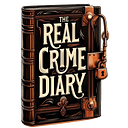Quick Tips: How to Gather Evidence Effectively
Gathering evidence is a critical part of any investigation, and knowing how to do it effectively can significantly impact the outcome of a case. Whether you are a student of criminal justice, an aspiring investigator, or simply a true crime enthusiast, understanding how to gather evidence can enhance your knowledge and skills in the field.
Understand the Types of Evidence
Before you begin gathering evidence, it is essential to familiarize yourself with the different types of evidence. Evidence is typically categorized as physical, testimonial, documentary, or digital. Each type has its significance and requires specific methods for collection. Understanding these categories will help you focus your efforts and ensure that you gather useful information.
Create an Evidence Collection Plan
A strategic approach to evidence collection begins with a well-thought-out plan. Determine what types of evidence are most relevant to your case, outline how you will collect them, and set timelines for each stage of the gathering process. Planning ahead allows for more organized collection efforts and minimizes the chances of overlooking crucial details.
Maintain Chain of Custody
One vital aspect of gathering evidence is maintaining the chain of custody. This means keeping a meticulous log showing who collected the evidence, where it was stored, and who had access to it at all times. A well-documented chain of custody ensures that the integrity of the evidence remains intact and can be upheld in court.
Be Aware of Legal Considerations
When collecting evidence, it’s crucial to understand legal guidelines that govern admissibility in court. Ensure that you have proper authority to collect certain types of evidence — especially if it’s from private property or involves sensitive material. Familiarizing yourself with laws related to search and seizure will help you avoid legal pitfalls.
Prioritize Thoroughness Over Speed
While there may be pressure to gather evidence quickly — especially in time-sensitive cases — thoroughness should always take precedence. Rushing through evidence collection can lead to missed opportunities or overlooked details that could prove critical later on. Take your time to ensure every possible piece of relevant information is gathered effectively.
Utilize Technology Wisely
The use of technology has transformed how evidence is gathered today. From digital forensic tools that can recover deleted files on devices to apps designed for secure data collection, leveraging technology can greatly enhance your evidential capabilities. However, always ensure that technological tools comply with legal standards.
Collaborate with Other Professionals
No investigator should work in isolation when collecting evidence. Collaborating with other professionals — such as law enforcement officers or forensic experts — can provide valuable insights and resources that streamline the process. Teamwork often leads to more comprehensive investigation outcomes.
Synthesize Your Findings
After gathering all relevant evidence, take time to synthesize your findings into a cohesive narrative. Analyzing how each piece fits into the larger picture enables clearer insight into potential motives or connections between suspects and victims. This process ultimately aids in formulating necessary actions moving forward.
By following these quick tips on effective evidence gathering, you’ll be better equipped not only as an investigator but also as someone passionate about justice in our society. Having solid techniques enhances both understanding and practical application in real-world scenarios within the criminal justice system.
